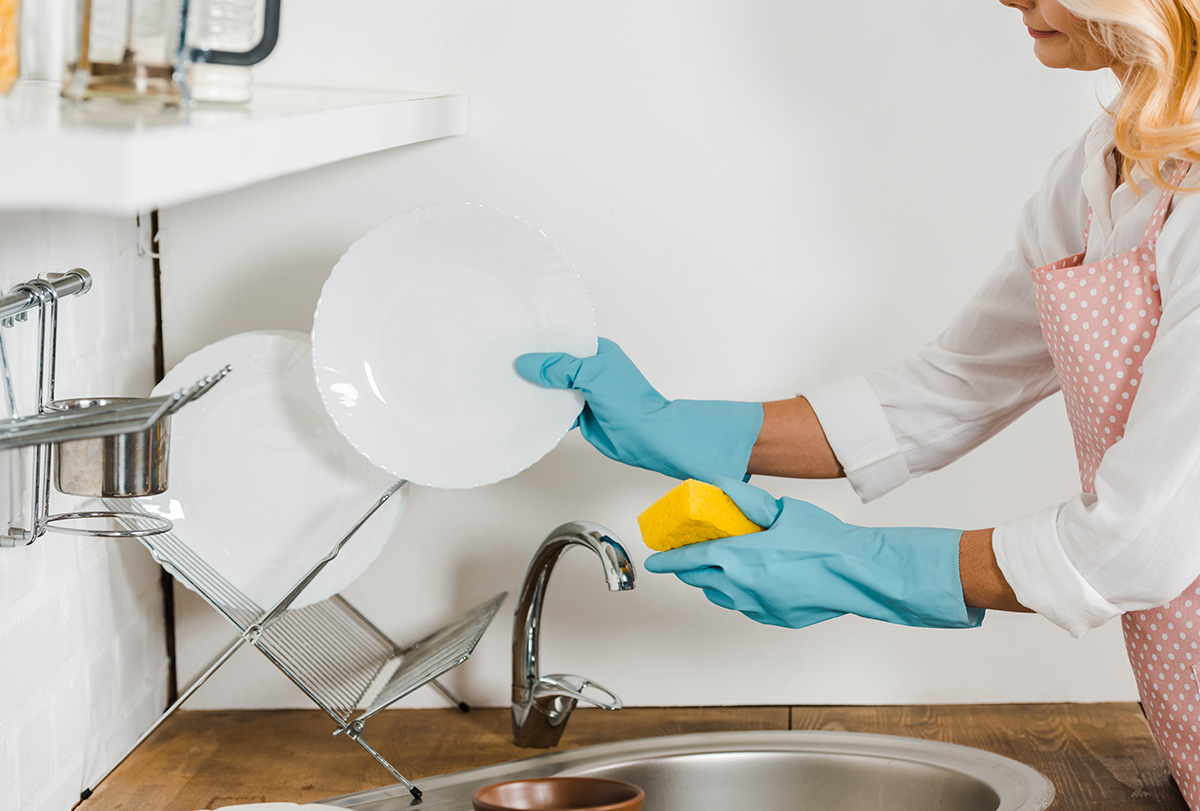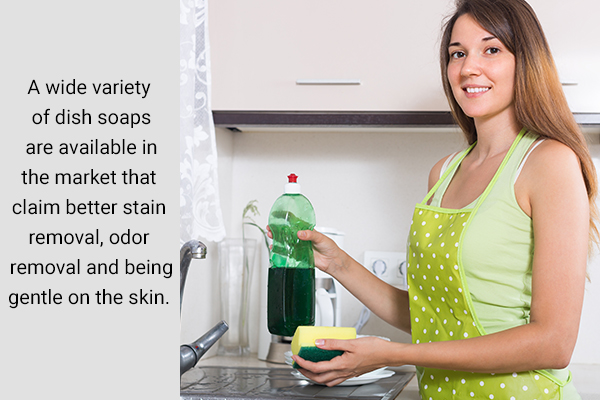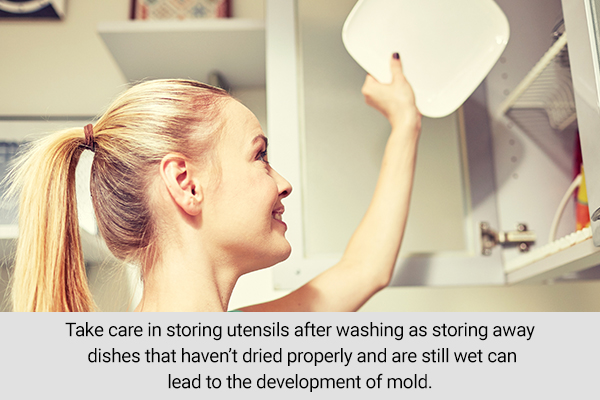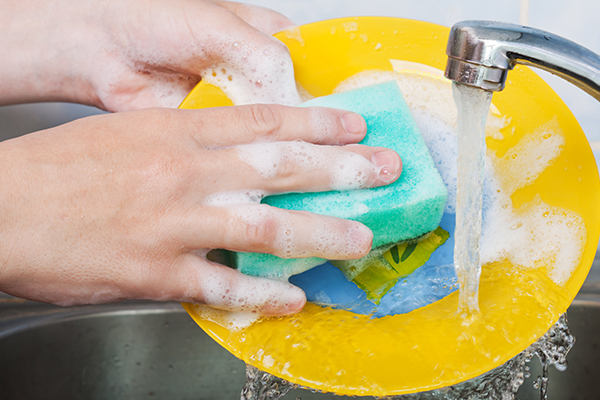In this article:
Cooking a meal is a highly productive task that many people find comforting. It leads to full bellies and the satisfaction of having fed your family delicious home-cooked food.

However, the task of cleaning up that comes after can be quite bothersome. Washing a sink full of dirty dishes can be tedious. And in a haste to finish the task, you often make mistakes and/or leave improperly cleaned dishes for a good long while.
The first thing that needs to be done is to change the mindset around tasks such as washing dishes.
Studies report dishwashing to be a good task to practice the act of “mindfulness.” Mindfulness allows you to pay attention and reach a heightened sense of awareness. This can help with relieving stress and managing mental health. (1)
You can also involve family members in the task of cleaning up after meals and washing the dishes to boost and foster a healthy relationship. In this way, you can turn a task that you do not feel like doing into something beneficial.
Mistakes to Avoid When Washing Dishes
When dishwashing, make sure you avoid these mistakes.
1. Not using the right temperature of water
When dishwashing by hand, the water should not be so hot that it is difficult to handle. Water temperature above 55°C or 131°F is sufficient to get rid of pathogens. However, care should be taken not to expose your skin to this temperature for long periods. (2)
Warm temperatures are also useful in removing oil and dirt and can emulsify the soap better. (2)
2. Washing with the wrong dish soap

A wide variety of dish soaps are available that claim better stain removal, odor removal, and being gentle on the skin.
One study has found liquid dish soaps to be better than paraffin blocks in removing stains and being good on the skin. (3)
Recently, a great shift has occurred toward being thoughtful about the generation of waste from soaps used for dishwashing. For this reason, natural and environment-friendly alternatives to dish soap have emerged. Among the most popular ones is soap nut, or Aretha nut as it is called in India.
Soap nut contains saponins that have effective detergent-like properties, can foam well, are safe for the skin (unless allergic), and are less toxic to the environment. (4)
3. Overscrubbing
Overscrubbing utensils that are covered in Teflon or ceramic can scratch or remove the coating. The coating particles can mix into the food and cause harm to health. (5)
For this reason, it is important to follow dishwashing instructions for utensils and cookware well.
4. Using a dirty sponge
Handwashing dishes is done using a sponge that can soak soapy water well to clean the dishes of food debris and bacteria. However, sponges can absorb this dirt and store bacteria, which can grow and multiply in the sponge.
A study done on university students found that the sponges they used harbored harmful bacterial colonies, yeasts, molds, and antibiotic-resistant disease-causing bacteria. (6)
Therefore, it is important to frequently change dishwashing sponges to avoid illnesses and infections.
5. Storing dishes without drying

Storing away dishes that haven’t dried properly and are still wet can lead to the development of mold.
Household dampness such as that from wet dishes can lead to allergies and other respiratory conditions, as observed in one Danish study. (7)
Mistakes to Avoid When Using the Dishwasher
When using a dishwasher, avoid the following mistakes:
- Not rinsing food debris before putting the dishes in the dishwasher
- Stacking the utensils improperly
- Using the wrong temperature of water
Most-Asked Questions

Can I soak the dishes before handwashing them?
Soaking dishes for 10–15 minutes may be useful in getting difficult stains off. However, washing plates, spoons, and glasses immediately after use makes removing stains and washing them easy.
Can I let my dishes stay in the sink overnight?
Leaving dishes in the sink overnight can let bacteria breed and grow, which can be harmful to health. Moreover, waking up to a sink full of dirty dishes can be very demotivating and cause negative mental effects.
Final Word
Proper dishwashing is just as important for good health as eating the right food. Cleaning the utensils of bacteria and food particles is part of good hygiene practice. Therefore, care must be taken when dishwashing instead of being in a rush to finish this tedious task.
- Was this article helpful?
- YES, THANKS!NOT REALLY


